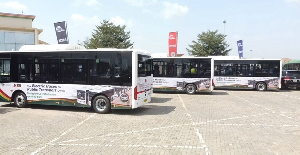Some residents of the Wa West District are complaining about the National Health Insurance Scheme (NHIS) premium, describing it high and beyond their means.
“It is difficult for some of us to raise 17 Ghana Cedis as premium and eight Ghana Cedis for biometric, totaling 25 Ghana Cedis, to get ourselves onto the NHIS.”
“This is on the high side considering the poverty levels among us in the district, and we urge government to have a second look at it,” the residents said.
The residents made the protest at a Send-Ghana Forum to share its 2013 research findings on the NHIS with stakeholders in the district.
The participants said even though the NHIS was a pro-poor government intervention expected to facilitate the poor’s access to healthcare, in reality it was benefiting the rich more than the core poor.
On Free Maternal Care, the residents said some health workers were collecting unapproved monies at some health facilities, thereby preventing poor pregnant women from enjoying the full benefits of the scheme.
Mr. Adamu Mukaila, Programme Officer of Send-Ghana presented the findings, which indicated that the extreme poor population of the Upper West Region was 45 per cent, and per the criteria of the NHIS for selection of indigents, qualified to be registered.
However, only 14 percent had been registered, leaving as much as 31 per cent of the population who fell into the category of extreme poor not registered with the NHIS.
The report argued that a pro-poor programme like the NHIS should reach not only the extreme in general, but all those who lived below the poverty level of 1,314.00 per year.
The research findings showed that the Upper West Region recorded the highest incidence poverty of 70.7 per cent, but the number of poor covered by the NHIS was just 14 per cent.
However, the study found out that there were a number of hidden or unapproved charges at the various facilities that prevented poor pregnant women from fully enjoying benefits offered by the policy.
The results showed that in some facilities clients were charged between three Ghana Cedis and four Ghana Cedis for items such as specimen bottle for laboratory test and also pay for kits for pregnancy test, among others.
Most of the health facilities lacked basic drugs and as a result prescriptions were given to clients to buy from pharmacies and chemical shops.
In most rural areas, chemical shops have not been accredited by the NHIS, and operated on cash and carry basis, thereby denying several poor pregnant women the drugs.
On the basis of the findings of the study, Send-Ghana recommended that the Department of Social Welfare collaborated with traditional authorities and assembly members to identify the poor and vulnerable in the communities for referral for registration under the NHIS.
The NHIS, the Department of Social Welfare, and the Ghana Statistical Service, should also work together to identify the 2.2 million Ghanaians who could not afford to feed themselves if even they used all their income on food for immediate registration on the NHIS.
Send-Ghana advocated that the Ghana Health Service should as a matter of urgency, collaborate with the NHIS to provide essential drugs to the various health facilities, to address the issue of shortage of essential drugs which affected the poor’s realization of the full benefits of the scheme.
That would also help reduce the risk on the part of patients to buy fake and counterfeit drugs from peddlers and unqualified chemical shops.
The report suggested that LEAP beneficiaries be registered with NHIS during the disbursement of funds, while Parliament also reviewed the definition of indigents as provided by Act 650 during the formulation of the new legislative instrument to back Act 852 to be consistent with national poverty indicators.
Health News of Thursday, 10 December 2015
Source: GNA
















